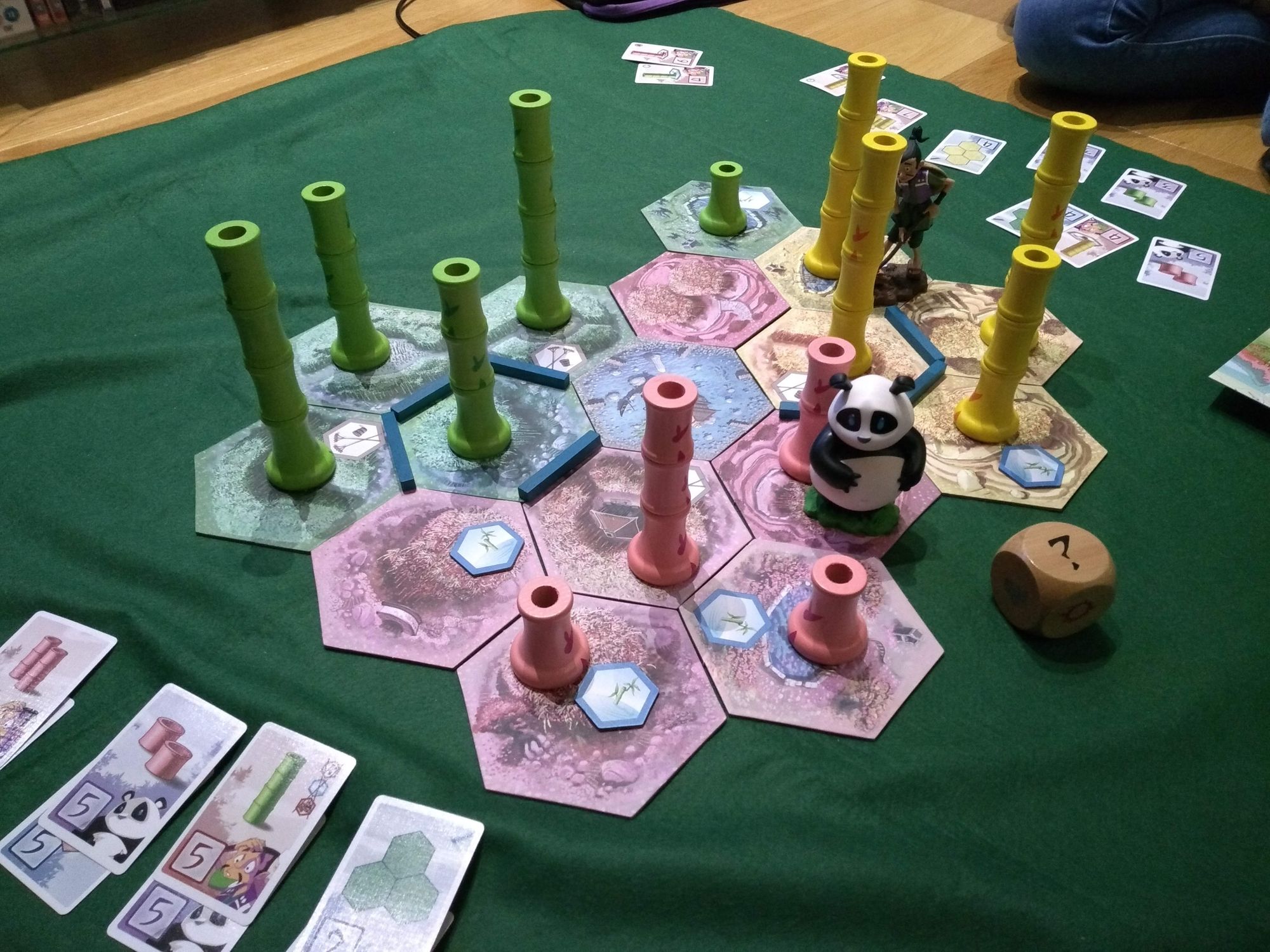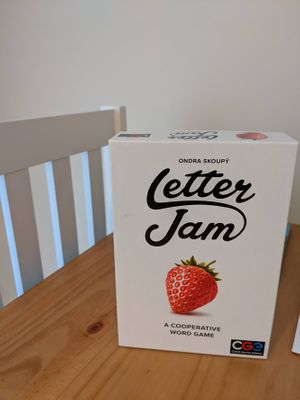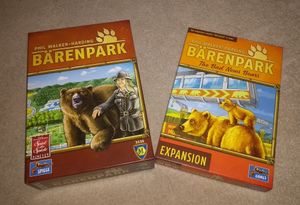I love to categorise games. With most games, you can point to them and say “this is a deck builder” or “this is a Euro game”. It’s always exciting to me when I discover a game that I have trouble categorising; Takenoko is one of these games. I have played it many times and still have difficulty placing it in any category. I had not played anything like it before and I haven’t since. It stands in its own category of “Panda simulator”.
In Takenoko, players work together to build the Japanese Emperor's bamboo garden, move the gardener around to grow bamboo and move the Emperor’s coolest new gift, a giant panda, around to eat the bamboo and generally annoy the gardener. Players all have secret objectives to build the garden in different configurations, grow bamboo in certain ways and get the panda to eat certain species of bamboo. In addition to players’ normal actions, they also get a bonus based on the weather for their turn, determined by a dice roll. Once any player has completed enough objectives, they get a two point bonus and the remaining players get one remaining turn to finish any objectives they have. The player with the most points wins.
The rules are relatively simple and quick to teach. I have had a lot of success playing this with non-gamers but there is sufficient strategic depth to keep the more avid gamer happy. Aiming for garden building objectives can be a very easy way to score but comes with fewer points than the bamboo growing or eating objectives. The bamboo growing gives the most points but comes with associated risks as the panda is constantly eating your beloved stacks of bamboo and ruining your day. You can plan clever ways to get to your goals, and these can work, but sometimes, by the time your turn comes around, the garden is in a state that forces you to change tactics. Some may find this frustrating but I love the constant push and pull as players vie to build the garden as they want it. The randomness allows for new players to do well without putting them off but still allows you enough control such that you feel like if you play well enough then you can win.
The components are fantastic with an adorable little panda (or huge panda if you have the special edition) and beautiful wooden bamboo that remains sturdy on the garden tiles with lush pastel colours and great illustrations. The theme is wonderful, with occasional feelings of tranquility as you build a beautiful garden together with the added comedy value of dragging the poor gardener around, growing bamboo with a great big panda in tow ruining his hard work. It feels great when you complete your objectives but, in a weird way, it also feels great as you see other players complete theirs and just watching the garden develop.
It is often good in a game to know who you are in the game world. It helps you connect with the theme and make decisions based on who your character is. In Takenoko it’s not easy to see who you are. You aren’t the gardener, or the panda, or the Emperor. Are you the weather? Some sort of bamboo spirit? I don’t care. You do feel like some ethereal part of this glorious garden and I’m always keen to get back in there, whoever I’m supposed to be.
Takenoko is a game fit for gamers, non-gamers, families, pandas, everyone. It’s a truly unique game and is one of the longest standing items in my collection. Despite this I am always excited to play it with old friends or introduce it to new ones. I’ll play it anytime. I’ll play it right now...







